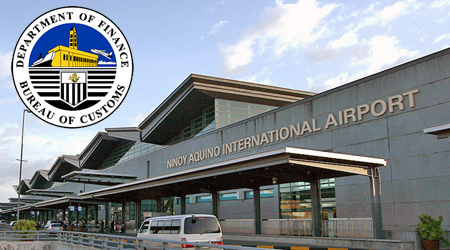
The overnight parking rate for cars at the Ninoy Aquino International Airport (NAIA) quadrupled to P1,200 from P300 under the policy of the private concessionaire.
New NAIA Infra Corp., the new operator of Ninoy Aquino International Airport (NAIA), said it implemented the higher parking fees Tuesday to support maintenance and upgrades of the airport’s facilities.
The new hourly rates for the parking are P50 for first two hours, P25 for every succeeding hour and P1,200 for overnight parking for cars; P20 for the first two hours, P10 for every succeeding hour and P480 for overnight parking for motorcycles; and P100 for the first two hours, P50 for every succeeding hour and P2,400 for overnight parking for buses.
“These adjustments are necessary to ensure continued maintenance and improvements of our facilities,” NNIC general manager Angelitio Alvarez said.
“We appreciate your understanding and support as we implement these changes,” he said.
The company confirmed that it significantly increased the overnight parking fees to discourage the use of NAIA as a long-term parking facility.
NNIC said the previous parking rates unintentionally encouraged misuse of the airport’s limited parking spaces.
Many individuals, including those from nearby establishments and with no airport-related business, were taking advantage of the low rates for overnight or long-term parking. This created parking shortage for actual passengers, adding to congestion and frustration, NNIC said.
NNIC said the adjustments were not intended to generate profit.
“The goal is to optimize parking for our passengers. While the previous rates may have been convenient for some, they created significant disadvantages for travelers. We believe these changes will create a more efficient and passenger-friendly airport experience,” the company said.
NNIC said it is committed to providing a seamless and positive travel experience at NAIA. It said that aside from optimizing existing parking facilities, it plans to increase parking capacity by building new facilities, starting with Terminal 3, which accommodates 65,000 to 68,000 passengers daily.
NNIC on Sept. 14 assumed control of NAIA, with plans to modernize and transform the Philippines’ primary international gateway into a world-class facility.
The company committed to spending P170 billion to execute its phased but ambitious plan to elevate NAIA to world-class standards. This includes plans to increase passenger capacity from 43 million to 62 million annually and air traffic movements from 42 to 48 per hour.
The government stands to gain about P1 trillion in revenues from the PPP project over the 25-year concession period. This includes the 82.16-percent revenue share to be remitted to the government yearly.


Be the first to comment